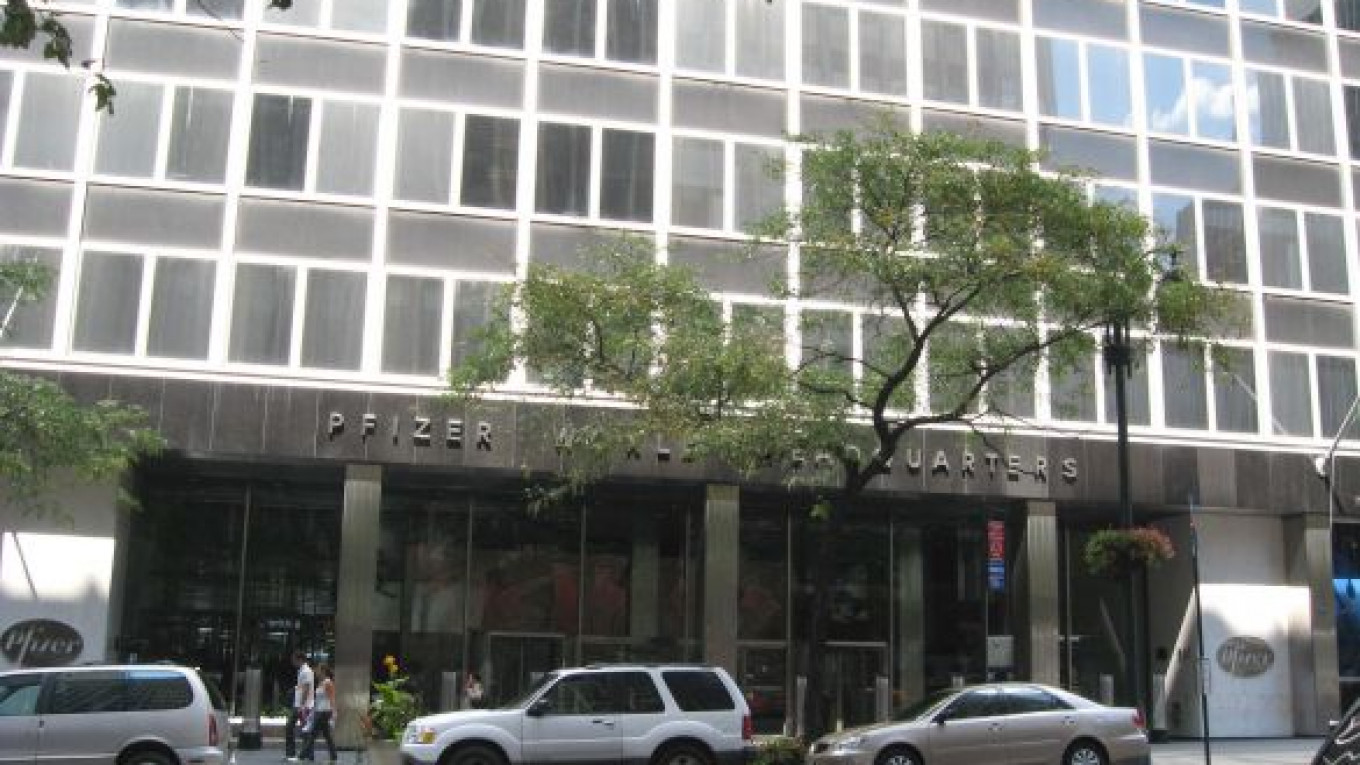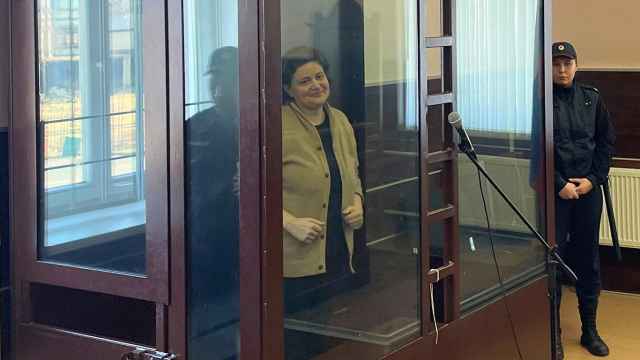Pharmaceuticals giant Pfizer will pay a fine of $60 million in the United States after admitting to systemic corruption over more than a decade in Russia and other countries across Europe and Asia.
While there is little chance of an investigation being launched by the Russian authorities, corruption at Pfizer Russia was endemic from the mid-1990s until 2006, according to an investigation by the U.S. Securities and Exchange Commission under the Foreign Corrupt Practices Act, or FCPA.
Transgressions included the bribing of top health officials, payments to offshore accounts and the handing over of cash-filled envelopes to doctors.
Both the company's then-Russia head and its finance director were implicated in the authorization of corrupt financial transfers to help boost Pfizer's presence on the market.
"The payments of cash and other benefits were intended to obtain regulatory approvals relating to Pfizer products, to avoid delays and penalties associated with the importation of certain Pfizer products, and to influence the doctors to prescribe Pfizer products," the SEC said in a statement released in the United States on Tuesday.
Pfizer's $60 million fine will be paid both to the SEC and the Justice Department and relates to FCPA violations not only in Russia, but also Bulgaria, China, Croatia, the Czech Republic, Italy, Kazakhstan and Serbia.
In the SEC's complaint against Pfizer in Russia, it details six major forms of bribery in which Pfizer was engaged — including payments to customs officials to smooth the entry of goods and improper travel payments.
One payment made in 2003 was to fund a "motivational trip" for then-First Deputy Health Minister Gennady Onishchenko to help win the inclusion of Pfizer products in state orders. Onishchenko is now Russia's chief doctor.
In another instance, Pfizer's Russian management authorized payments to shell companies in Cyprus and Latvia — and then attempted to hide the real nature of the transfers when confronted by regional managers in Germany.
Pfizer, the world's largest pharmaceutical manufacturer by revenue and the producer of impotence drug Viagra, is the latest in a series of U.S. giants to fall foul of the FCPA, which makes bribery in a foreign country by a U.S. company illegal under U.S. law.
Mercedes Benz manufacturer Daimler admitted to paying more than $4 million in bribes between 2000 and 2005 to Russian officials in a settlement with the U.S. Justice Department in 2010. Siemens has also been penalized under FCPA and Hewlett Packard was entangled in a widespread investigation into possible corrupt practices in Russia.
"It is a major challenge for any large, multinational corporation to ensure proper control over all of its employees," said William Reichert, a partner at K&L Gates Holding in Moscow. "If you compare such a company to a millipede, you have to get through to every one of its thousand legs … even with the best of efforts, companies can still find themselves in trouble."
In a statement released Tuesday, Pfizer stressed that the settlement with the SEC was purely in connection with "local activities" conducted by regional branches and that there had never been any allegation that managers at the company's U.S. corporate headquarters were complicit.
"All the conduct at issue was investigated by Pfizer and voluntarily disclosed to the U.S. government," the statement said.
Despite the large fine levied by the U.S. Authorities, there is no sign that Moscow will be looking to penalize Pfizer for its corruption.
The company is unaware of any investigations into the practices highlighted by the SEC, Pfizer spokesman Andrew Widger said in e-mailed comments Thursday.
The Federal Anti-Monopoly Service will not use the SEC's material to open investigations into Pfizer's activities in Russia in the early 2000s because the Anti-Corruption Act only came into force in 2006, said Mikhail Yevrayev, head of the agency's state purchasing department, Vedomosti reported Thursday.
While the SEC and the Justice Department have increased the resources they allocate to prosecuting companies under FCPA over the last five years, the Russian and U.S. authorities have a poor track record of collaboration on major corruption scandals. Few of the biggest settlements under FCPA in the U.S. have resulted in Russian investigations.
But legal experts said that, as long as concrete individuals were implicated, theoretically charges were possible in the case of Pfizer.
"The recent [SEC] information could serve as a basis for establishing the facts of bribe-giving to specific individuals, including civil servants," said Anna Burdina, a lawyer at Moscow law firm Yukov, Khrenov and Partners.
British-born Robert Marshall was the head of Pfizer's Russian operations between 1996 and 2006 before he stepped down. He had previously worked for Swiss pharmaceutical company Sunders and U.K.-based Beecham's.
Pfizer declined Thursday to comment on the exact extent of the personnel turnover at the company's Russian operation since the corruption outlined by the SEC in the early 2000s.
A Message from The Moscow Times:
Dear readers,
We are facing unprecedented challenges. Russia's Prosecutor General's Office has designated The Moscow Times as an "undesirable" organization, criminalizing our work and putting our staff at risk of prosecution. This follows our earlier unjust labeling as a "foreign agent."
These actions are direct attempts to silence independent journalism in Russia. The authorities claim our work "discredits the decisions of the Russian leadership." We see things differently: we strive to provide accurate, unbiased reporting on Russia.
We, the journalists of The Moscow Times, refuse to be silenced. But to continue our work, we need your help.
Your support, no matter how small, makes a world of difference. If you can, please support us monthly starting from just $2. It's quick to set up, and every contribution makes a significant impact.
By supporting The Moscow Times, you're defending open, independent journalism in the face of repression. Thank you for standing with us.
Remind me later.







